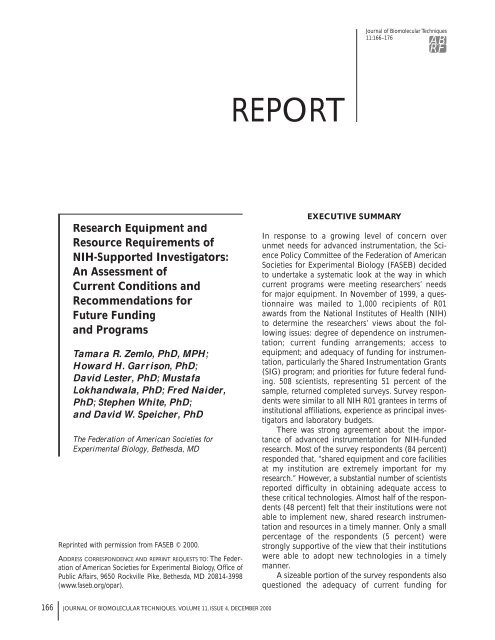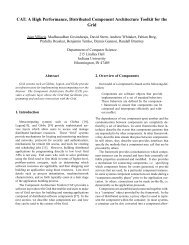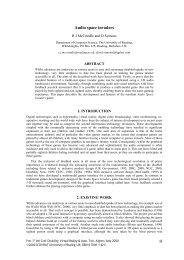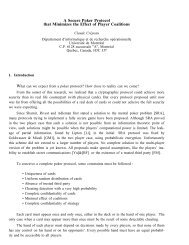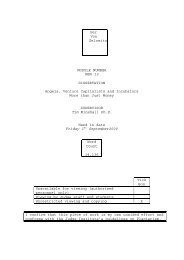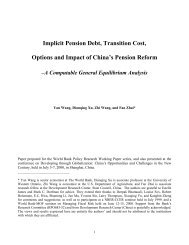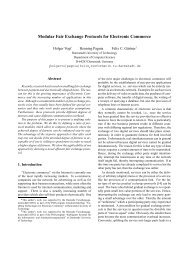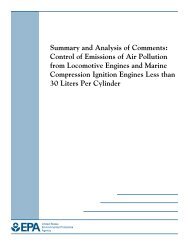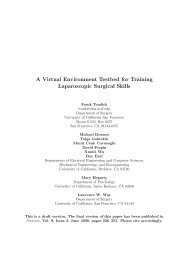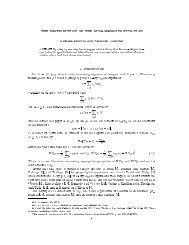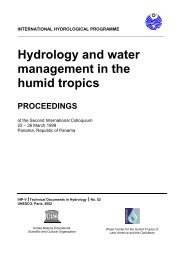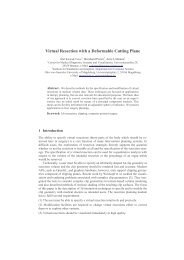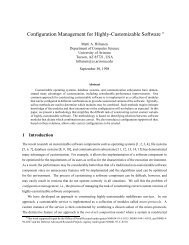FR AB - Science Reference
FR AB - Science Reference
FR AB - Science Reference
You also want an ePaper? Increase the reach of your titles
YUMPU automatically turns print PDFs into web optimized ePapers that Google loves.
Research Equipment and<br />
Resource Requirements of<br />
NIH-Supported Investigators:<br />
An Assessment of<br />
Current Conditions and<br />
Recommendations for<br />
Future Funding<br />
and Programs<br />
Tamara R. Zemlo, PhD, MPH;<br />
Howard H. Garrison, PhD;<br />
David Lester, PhD; Mustafa<br />
Lokhandwala, PhD; Fred Naider,<br />
PhD; Stephen White, PhD;<br />
and David W. Speicher, PhD<br />
The Federation of American Societies for<br />
Experimental Biology, Bethesda, MD<br />
Reprinted with permission from FASEB © 2000.<br />
ADDRESS CORRESPONDENCE AND REPRINT REQUESTS TO: The Federation<br />
of American Societies for Experimental Biology, Office of<br />
Public Affairs, 9650 Rockville Pike, Bethesda, MD 20814-3998<br />
(www.faseb.org/opar).<br />
166 JOURNAL OF BIOMOLECULAR TECHNIQUES, VOLUME 11, ISSUE 4, DECEMBER 2000<br />
REPORT<br />
EXECUTIVE SUMMARY<br />
Journal of Biomolecular Techniques<br />
11:166–176<br />
RF <strong>AB</strong><br />
In response to a growing level of concern over<br />
unmet needs for advanced instrumentation, the <strong>Science</strong><br />
Policy Committee of the Federation of American<br />
Societies for Experimental Biology (FASEB) decided<br />
to undertake a systematic look at the way in which<br />
current programs were meeting researchers’ needs<br />
for major equipment. In November of 1999, a questionnaire<br />
was mailed to 1,000 recipients of R01<br />
awards from the National Institutes of Health (NIH)<br />
to determine the researchers’ views about the following<br />
issues: degree of dependence on instrumentation;<br />
current funding arrangements; access to<br />
equipment; and adequacy of funding for instrumentation,<br />
particularly the Shared Instrumentation Grants<br />
(SIG) program; and priorities for future federal funding.<br />
508 scientists, representing 51 percent of the<br />
sample, returned completed surveys. Survey respondents<br />
were similar to all NIH R01 grantees in terms of<br />
institutional affiliations, experience as principal investigators<br />
and laboratory budgets.<br />
There was strong agreement about the importance<br />
of advanced instrumentation for NIH-funded<br />
research. Most of the survey respondents (84 percent)<br />
responded that, “shared equipment and core facilities<br />
at my institution are extremely important for my<br />
research.” However, a substantial number of scientists<br />
reported difficulty in obtaining adequate access to<br />
these critical technologies. Almost half of the respondents<br />
(48 percent) felt that their institutions were not<br />
able to implement new, shared research instrumentation<br />
and resources in a timely manner. Only a small<br />
percentage of the respondents (5 percent) were<br />
strongly supportive of the view that their institutions<br />
were able to adopt new technologies in a timely<br />
manner.<br />
A sizeable portion of the survey respondents also<br />
questioned the adequacy of current funding for


